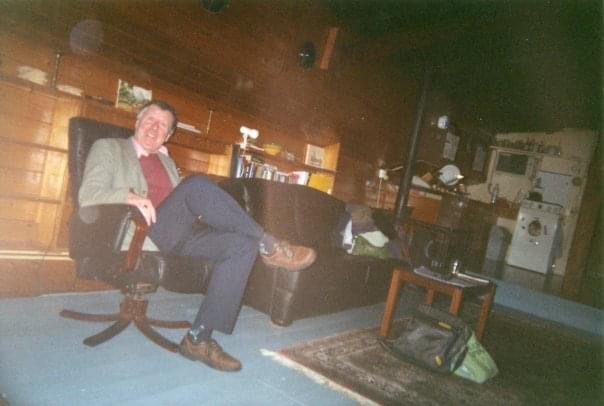Arsonists torch luxury cars as way of fighting the growing gentrification of many areas of the city
* by Kate Connolly, Berlin
* The Observer, Sunday 10 January 2010
They come out mostly after dusk, typically carrying a simple set of tools – a box of matches, and slow-burning barbecue firelighters which are lit and placed next to a car's tyre. By the time the flames have taken hold the culprit has vanished, and the car is ablaze and beyond recovery when the fire brigade arrives.
In Berlin, a growing band of leftwing car arsonists have become the face of an increasingly vociferous campaign against the gentrification of the German capital. In 2009, 216 mostly luxury cars were torched on the streets of the city, compared with 135 the previous year.
So common is the practice that spotting the attacks has become a popular pastime, spawning an obscure website, "Burning Cars", where contributors track the models that have been targeted. Brennende-autos.de lists the six most recent cars as two Mercedes – the most popular target – a Jeep, Range Rover, Mitsubishi and a rather more modest Ford, which was burned almost beyond recognition on New Year's Day on Hermannstrasse in the former West Berlin district of Kreuzberg. The traditional home of leftwing activism is where most have taken place.
The attacks have been spreading across the city, and are influencing protest groups in other cities, like Hamburg, where there has been a rise in car arson attacks, particularly on police cars. The choice of vehicle has also widened. Lorries belonging to DHL, the courier company, were recently attacked because they serve the German military in Afghanistan, as were German Railways' vehicles – in retaliation for its role transporting nuclear waste by train.
No single group is believed to be behind the attacks, although last year one calling itself Bewegung für Militanten Widerstand (Movement for Militant Resistance) – with the provocative acronym BMW – admitted responsibility for torching eight cars.
In a letter to a leftwing publication, the group said it carried out the attacks in protest at the post-Berlin Wall "transformation of poorer districts", such as Neukölln , Kreuzberg and Mitte where it said "established residents", were being squeezed out by "acute gentrification".
Old flats and warehouses turned into luxury loft apartments have driven up rents and house prices beyond most residents' means. Since the fall of the wall more than 20 years ago, the process has changed the demographic profile of many neighbourhoods. Prenzlauer Berg, in the former communist East Berlin has undergone the most dramatic change, turning from a workers' district into an affluent quarter, which has lost around 60% of its original residents since 1990.
Anger felt by those affected by the influx of the "new bourgeoisie" extends to the disappearance of open spaces and a growing indignation among communities that they are not being consulted. The protest has recently spread to the disused runways of Tempelhof airport, which was closed two years ago. Authorities want to use to land for luxury apartments. Opponents would like it to be developed as a park.
"We have no voice in the way the city is changing," says Jan, 26, a graphic designer and a member of an underground anti-fascist movement in Kreuzberg. He sat in a cafe close to a patch of land where East German police used to patrol the border between East and West Berlin. "Until recently it was where I used to walk my dog and meet friends," he said. "Now look – they're building glassy apartment blocks there for rich yuppies to move into."
Gentrification, he said, is leading to the closure of the very places that have made Kreuzberg a fashionable and desirable place to live, such as Bierhimmel (beer heaven), a popular bar on Oranienstrasse, which has just been forced to close by rising rents. Farther down the road, SO36, a legendary nightclub, may go the same way because of complaints from new residents – scathingly called schicki mickis – about the noise.
A recent meeting at SO36 discussed non-violent ways to keep out "unwanted" residents. Erwin Riedmann, a sociologist, proposed an "uglification strategy" – to "go around wearing a ripped vest and hang food in Lidl bags from the balcony so that it looks like you don't have a fridge". The suggestion drew laughs, but is a strategy being adopted.
An "anti-schicki micki" website, esregnetkaviar.de (it's raining caviar), offers the following tips to make a neighbourhood unattractive for newcomers: "Don't repair broken windows; put foreign names on the doorbell, and install satellite dishes."
Police say they are at a loss as to how to deal with the problem, adding that they cannot patrol Berlin's 5,800km of roads or control an estimated 1,100 leftwing extremists. "It's extremely easy to set light to a car and by the time the first flames are visible the culprit is at least two streets away," said Dieter Glietsch, Berlin police chief.
Peter-Michael Haeberer, head of Berlin's LKA investigation bureau, said there was a lack of willingness to examine the issue. "You have to ask why does such a large part of society so obviously feel excluded," he said.
10.1.10
the jingling geordie

- keith armstrong
- whitley bay, tyne and wear, United Kingdom
- poet and raconteur





